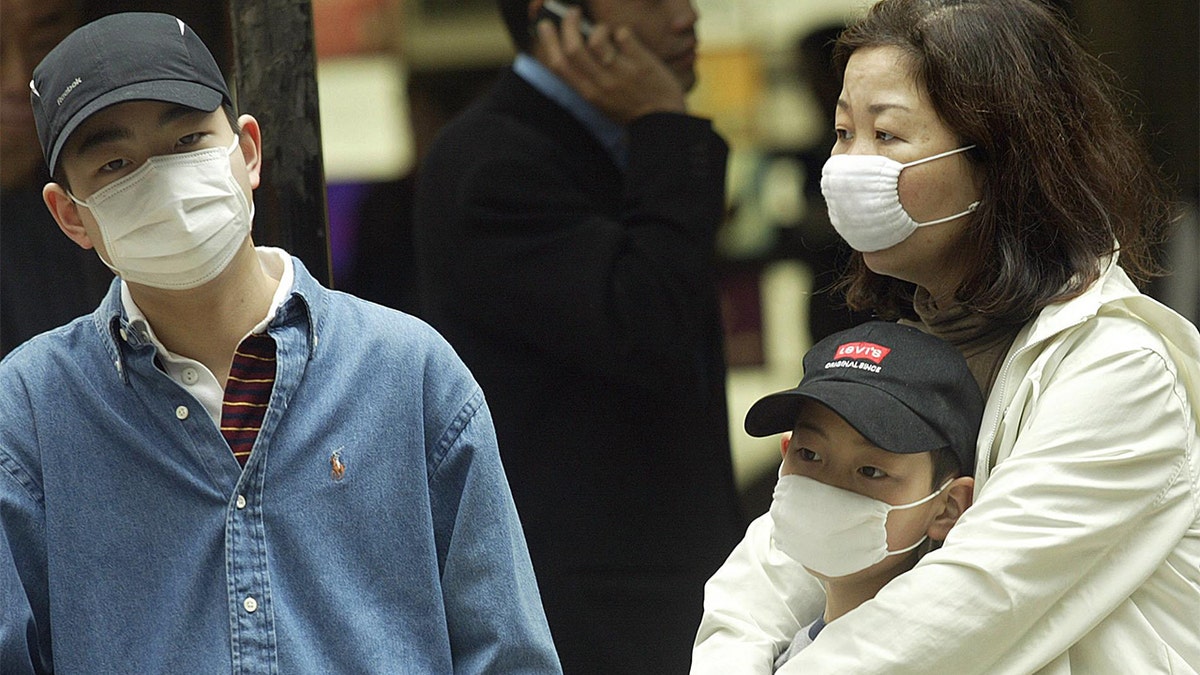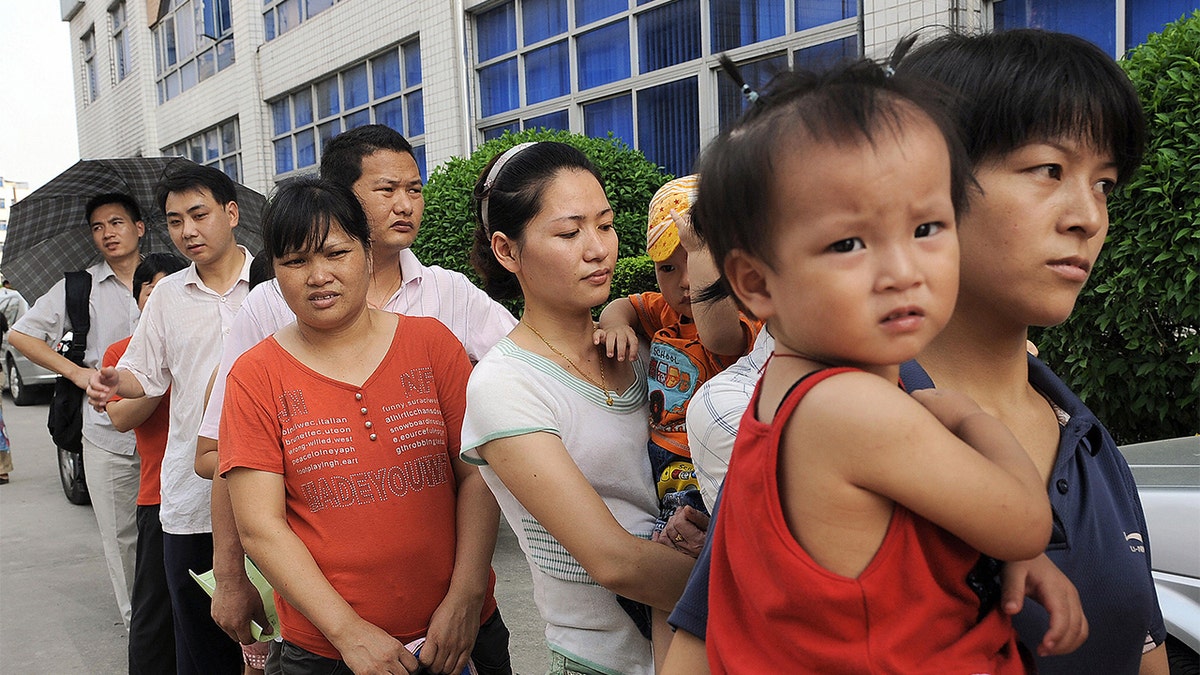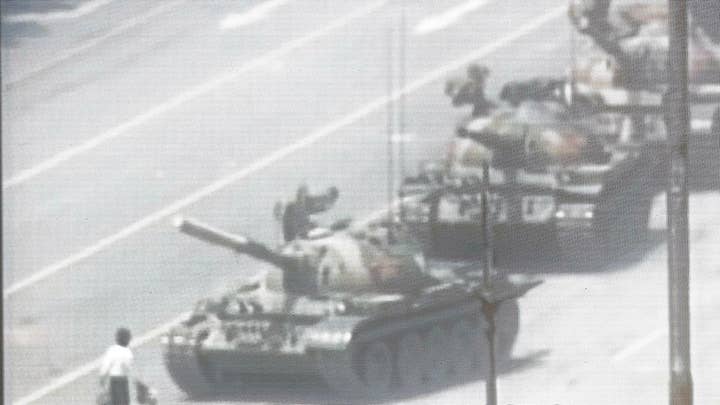Coronavirus is latest in China's history of covering negative info
As coronavirus continues to spread across the world, the Chinese government has been accused of withholding information about the outbreak that began on its soil. Here are some other examples of China trying to cover up negative information.
Get all the latest news on coronavirus and more delivered daily to your inbox. Sign up here.
Months after the coronavirus began to surface in China, the outbreak has spread across the world, killing thousands and prompting governments to enact unprecedented containment measures.
Beijing says it's slowly beginning to emerge from the crisis that originated on its soil, while putting its propaganda machine to work to craft a favorable narrative. Weeks after announcing the outbreak, some governments -- particularly the United States -- are accusing China of purposely failing to inform the public, thereby exacerbating the crisis.
A Chinese doctor who has since died of the virus tried sounding alarms during its early stages. Li Wenliang -- who worked in a Wuhan hospital and has since been hailed as a hero -- was detained with eight other doctors for posting information about patients with respiratory problems on WeChat, a Chinese messaging platform.
Authorities claimed the doctors were spreading "unverified information" as reason for their detention. Other doctors were reprimanded and told to stop posting online about the virus. Li was released after signing a document admitting he committed "illegal acts."
He eventually contracted the virus and died in February.
“If society had at the time believed those ‘rumors,’ and wore masks, used disinfectant and avoided going to the wildlife market as if there were a SARS outbreak, perhaps it would’ve meant we could better control the coronavirus today,” the Supreme People’s Court said of Li's detention. “Rumors end when there is openness.”
SARS
Accusations of covering up unfavorable news to protect its image are nothing new to the Chinese Communist Party, which has a penchant for secrecy that has hampered containment efforts in the past.

A family wears masks on a street in the Central business district of Hong Kong as the SARS outbreak grips the territory on March 24, 2003. (Photo by Peter PARKS / AFP) (Photo by PETER PARKS/AFP via Getty Images)
When the Severe Acute Respiratory Syndrome (SARS) epidemic broke out in the country in late 2002, the Chinese government was accused of failing to take action for several months. The virus was believed to have originated from wet markets of the Guangdong province before spreading to major cities.
It took the government four or five months to disclose the outbreak, which claimed the lives of more than 770 people in 30 countries.
Tainted milk
Chinese authorities reportedly ordered Sanlu Group Co, the maker of infant formula that was embroiled in a string of recalls after its tainted milk powder was linked to kidney stones in infants and at least four deaths, to cover up the scandal for fear of igniting social unrest.
Parents who tried warning of the poisoned milk were thwarted by an unresponsive bureaucracy, according to the New York Times, and journalists who heard about the sick children were blocked from covering the story during the run-up to the 2008 Olympics in Beijing.

Parents queue up to have their children checked at Longgang central hospital in Shenzhen on Sept. 21, 2008 amidst a tainted milk scandal that killed four babies. (Photo credit should read TED ALJIBE/AFP via Getty Images)
A massive outcry stemmed from how the public remained uninformed for months as parents gave their children tainted formula. Many of the corporations involved were blamed, but so were government officials who were criticized for the Chinese Communist Party's desire to maintain control rather than fix a broken regulatory system.
In all, more than 300,000 babies became sick. Sanlu's chairwoman was given a life sentence for doing nothing to stop the sale and production of the milk after learning it was dangerous. Several other executives were also jailed and a dairy farmer and milk supplier were executed.
Tiananmen Square massacre
China's need to control information also extends to well-known events. In 1989, 1 million pro-democracy protesters gathered at Beijing's Tiananmen Square to force the government to move away from decades of one-party rule.
Weeks later, Chinese troops entered the square and opened fire on the unarmed protesters. Hundreds, if not thousands, are believed to have died, but no official death toll was ever made public.
China has since censored the incident through draconian Internet restrictions and the elimination of any reference to the massacre.
Great famine
China's Great Famine claimed tens of millions of lives as Mao Zedong's Great Leap Forward transitioned the country into a communist society amid rapid industrialization in an attempt to catch up with the United States and Britain.
From 1958-61, Mao pushed harsh harvest quotas with primitive Soviet farming techniques.
CLICK HERE TO GET THE FOX NEWS APP
Combined with the persecution of farmers who failed to produce enough food, the country descended into a dark period where hunger impacted millions. Discussions of some Mao-era policies that revive national traumas have been banned in China in an effort to whitewash its history.
To talk about the famine at the time was deemed counterrevolutionary and subject to punishment from the state, according to the Christian Science Monitor.
Yang Jisheng, a journalist who wrote a 1,200-page account of the famine, was banned from leaving China in 2016 to travel to the U.S. to accept a Harvard University prize for his work.
His 2008 book, "Tombstone," is also banned in China.
The Associated Press contributed to this report.












































